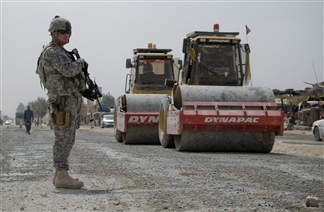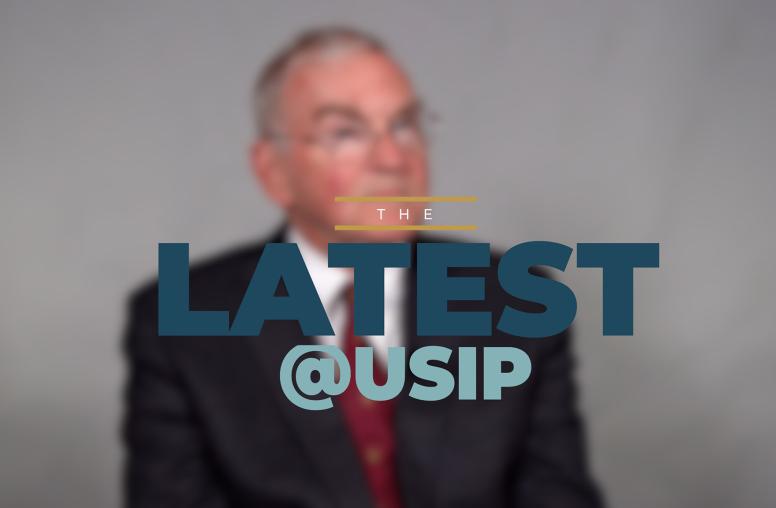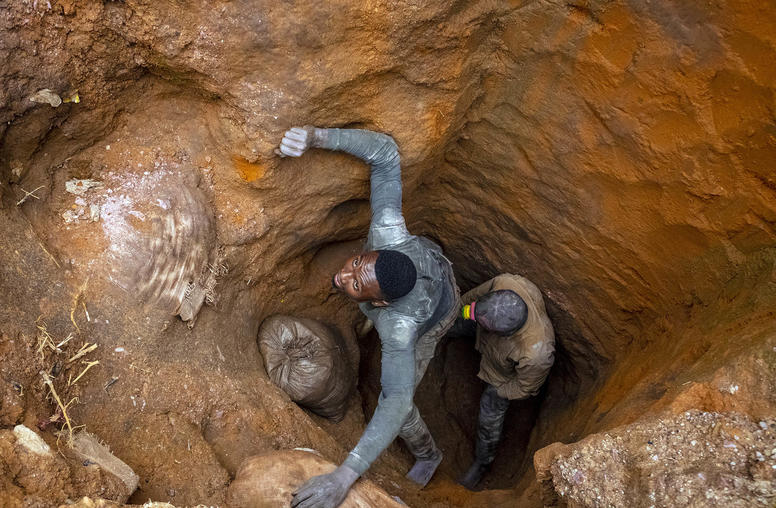A Roadmap for Effective Economic Reconstruction in Conflict-Affected Regions
This half-day event brought together leading scholars and experienced practitioners to build on an online discussion hosted by USIP’s International Network for Economics and Conflict and the insightful commentary by a distinguished panel of experts, who reviewed aspects of the World Bank's 2011 World Development Report on Conflict, Security and Development.
More than 1.5 billion people live in fragile and conflict-affected states. Recent attempts to foster stability and economic growth in fragile and conflict-affected states have had limited impact and millions remain destitute and insecure.
This half-day event will bring together leading scholars and experienced practitioners to build on an online discussion hosted by USIP’s International Network for Economics and Conflict and the insightful commentary by a distinguished panel of experts, who reviewed aspects of the World Bank's 2011 World Development Report on Conflict, Security and Development.
 The event will include two panels which will address structural as well as programmatic aspects of economic reconstruction, including: risk-aversion in donor institutions, inter-agency and international collaboration and cooperation, monitoring and evaluation, and the role of entrepreneurship and public/private partnerships.
The event will include two panels which will address structural as well as programmatic aspects of economic reconstruction, including: risk-aversion in donor institutions, inter-agency and international collaboration and cooperation, monitoring and evaluation, and the role of entrepreneurship and public/private partnerships.
Panelists will glean lessons from relevant case-studies and begin to chart the roadmap to peace and prosperity that World Bank President Robert Zoellick called for with the launch of the 2011 World Development Report.
The event will also launch a new USIP Special Report, "The Economics of Peace: Five Rules for Effective Reconstruction," with a presentation by author, Dr. Graciana del Castillo and remarks by former executive vice president of the U.S. Overseas Private Investment Corporation and founding partner of Total Impact Advisors, Ambassador John Simon.
Speakers
- Fred Tipson, Jennings Randolph Senior Fellow
U.S. Institute of Peace - Basel Saleh, Assistant Professor of Economics
Radford University - Jomana Amara, Assistant Professor of Economics
Naval Postgraduate School - Sharon Morris, Director of the Conflict Management Group
Mercy Corps - Robert Aten, Senior International Economics
Ret. U. S. Agency for International Development - Graciana del Castillo, Co-founding Partner
Macroeconomic Advisory Group - John Simon, Founding Partner
Total Impact Advisors - Del Fitchett
Independent Economics Consultant - Raymond Gilpin, Director of the Center for Sustainable Economies
U.S. Institute of Peace
Explore Further
- Visit the Center for Sustainable Economies
- Learn about the upcoming Academy Course: Developing a Framework for Economic Reconstruction in Conflict-Affected States, November 28- December 2, 2011
- Read the Special Report Reconstruction Zones in Afghanistan and Haiti by Dr. Graciana del Castillo
- View related INEC Blogs:
Related Academy Courses
- Economic Reconstruction in Conflict-Affected States
- Peacebuilding Organizations and Institutions
- Advising and Mentoring in a Reform Environment
9:00am | Welcome and Opening Remarks
- Raymond Gilpin, U.S. Institute of Peace
9:15am | Views from Scholars
- Fred Tipson, U.S. Institute of Peace
- Basel Saleh, Radford University
- Jomana Amara, Naval Postgraduate School
10:15am | Views from Practitioners
- Sharon Morris, Mercy Corps
- Robert Aten, ret. U. S. Agency for International Development
11:15am | Coffee Break
11:45pm | Overview: Five Rules for Economic Reconstruction
- Graciana del Castillo, Macroeconomic Advisory Group
- John Simon, Total Impact Advisors
- Del Fitchett, Independent Economics Consultant
12:45pm | Closing Remarks
- Raymond Gilpin, U.S. Institute of Peace



